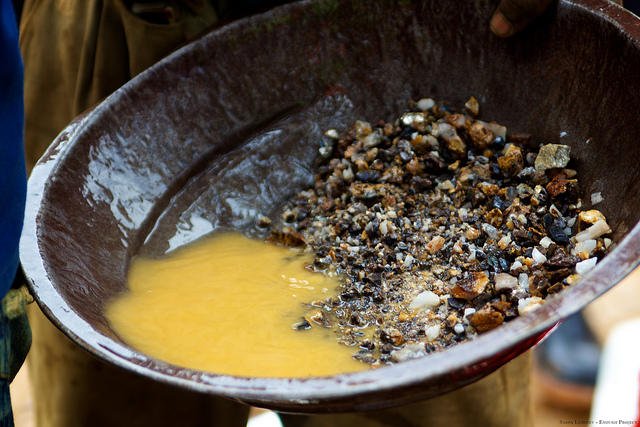
The Government of Rwanda recently announced that it has banned the sale of Congo conflict minerals within its borders. Historically, Rwanda has been a primary destination for the smuggling and export of minerals extracted from eastern Congo and bound for global markets.
There is a litany of existing grievances involving rebel groups and both the Rwandan and Congolese armed forces smuggling minerals out of eastern Congo into Rwanda for profit to the determent of the Congolese people and state; and at times Rwandan official export data for cassiterite and tantalum has far surpassed its national production capabilities. The primary takeaway from Rwanda’s recent announcement is that since the international push for mineral certification has picked up momentum, Rwanda has been angling to paint itself as the source for conflict-free minerals in the region despite its unwillingness or inability to stop the flow of Congolese minerals across its borders.
During President Kabila’s ban on mining in eastern Congo a coalition made up of the tin, tantalum, and electronics industries had been working to create an in-region mineral traceability scheme using barcode identification to “bag and tag” mineral shipments at pilot sites in the Kivu provinces and Maniema. However, the legal constraints of the ban meant they could no longer legally test their system. As contingency, sites were then indentified in the favorable operating environs of Rwanda. Since then, the Rwandan Geology and Mines Authority (OGMR) has become very good friends with the coalition, hosting the bag and tag system and making significant strides in getting their primary producing mines online to be certified through the traceability scheme.
During a recent conference on regional mineral certification hosted in Kigali by the International Conference of the Great Lakes Region, or ICGLR, the Rwandans stated that by the end of April they would be able to trace roughly 90 percent of their in-country production and export. They also took the attendees of the conference—made up of representatives from regional governments, international organizations, the electronics industry, international mineral processing facilities, and NGOs—out to one of the mine sites to show off the bag and tag system. Now, by instituting a ban on Congo conflict minerals they are taking it one step further and making a show to Western markets that both processors and companies can continue to source through the region via Rwanda and be considered conflict free.
The problem is that not four months ago we at Enough heard from credible sources echoing what recent United Nations reports found—that significant amounts of FARDC and ex-CNDP sourced minerals continued to be smuggled from Congo over the border, in some cases by loading up flatbed trucks with 50kg sacks of cassiterite, putting a layer of potato sacks on the top, and paying off the border guards to get into Rwanda hassle free. It is difficult to believe that these were isolated incidents and that Congolese materials aren't still finding their way into Rwandan supply chains. The absence of transparency and third party verification within the bag and tag system in Rwanda makes this all the more difficult to believe.
There is no doubt a burgeoning certification scheme is in place in Rwanda that is superior to what exists in the Congo; they have a better security environment and an ideological homogeneity among those involved that allows for more effective operations. However, the appropriate transparency and cross-checks do not yet exist to ensure that Congolese materials are not being smuggled into the country and exported through Rwanda. Therefore, Rwanda’s stated refusal to deal in Congolese conflict minerals, while admirable, must come with credible proof that the smuggling and tampering of minerals from Congo has been stopped. Otherwise, Rwanda’s move risks seeming more like opportunistic rhetoric rather than a credible shift in policy.
Photo: Tin ore (Enough/Sasha Lezhnev)

